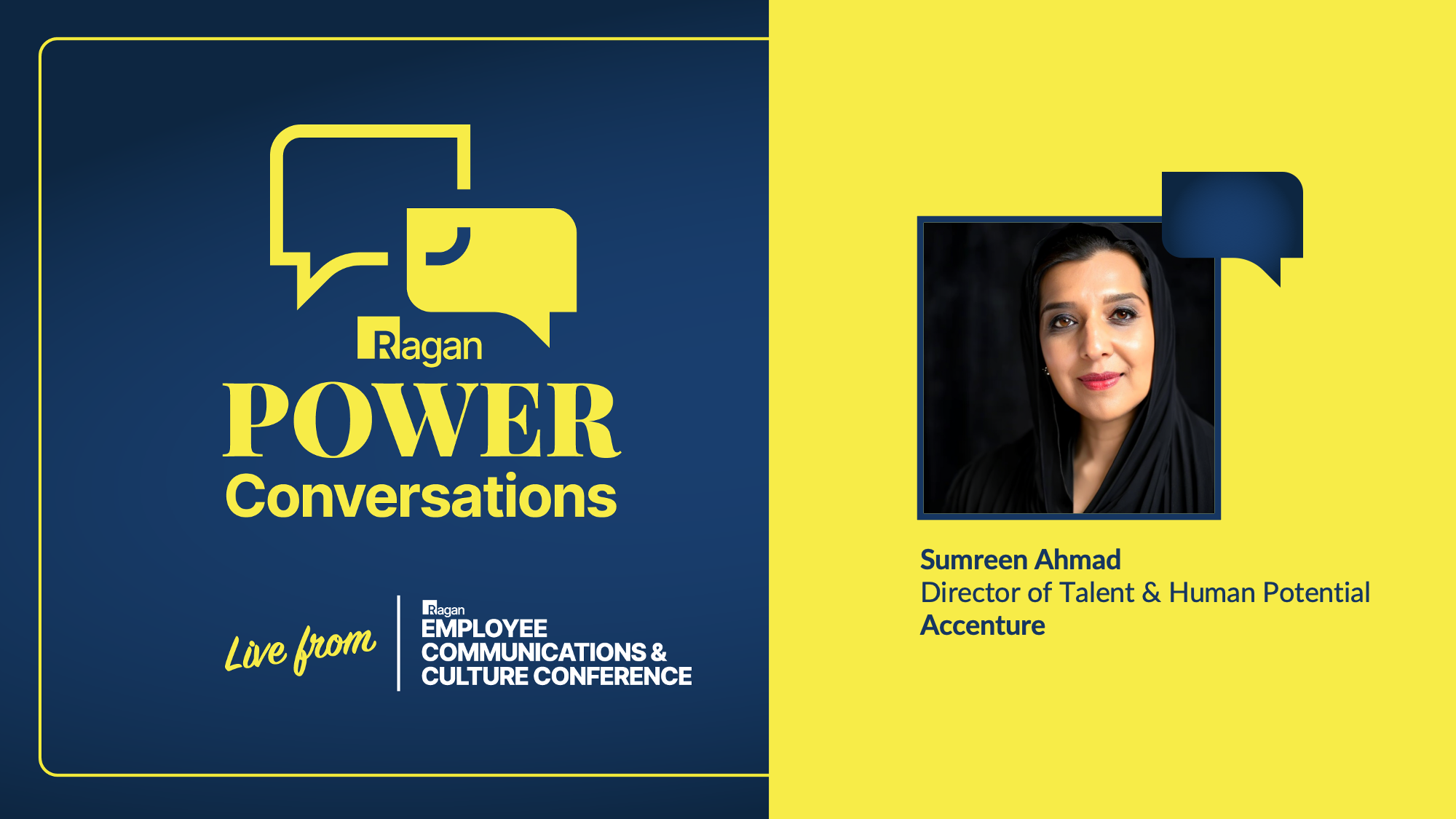The power of values and ERGs during contentious times
Accenture’s Sumreen Ahmad advocates for getting back to the basics, taking action and making space for intimate conversation on polarizing topics.

When tensions run high around polarizing and politicized topics — the war in Gaza, the impending election, reproductive healthcare, LGBTQ+ rights, just to name a few — interpersonal communication in the workplace can easily turn to conflict.
But there are steps leaders and communicators can take together to steer complex feelings into productive and peaceful discourse.
Ragan’s editorial director and editor-in-chief Justin Joffe spoke about this topic and more with Sumreen Ahmad, director of talent and human potential at Accenture, in a power conversation at our Employee Communication & Culture Conference in April 2024.
Simplify
Ahmad’s first tip? “We have to go back to some basics.” That is, return to your organization’s core values. “Core values are probably the most underutilized pieces of language that exist within an organization that can serve as the greatest impetus for bridge building.”
When emotions and opinions impede productivity and create tension, centering comms and deescalation strategies on the priorities and values the organization was originally founded on can create a clearer path toward unity and remind people why they came together to carry forth their mission.
Act
Ahmad reminded communicators to look inward and find the powerful words and phrases that rally employees to their cause, form the “glue” of the organization and convey a sense of shared humanity. But to make these principles stick, leaders must also act upon them.
These commonly include terms such as integrity, respect and stewardship. But Ahmad cautioned that, “Those words are only as good as you actually execute them.”
Comms’ role in that process often involves helping leaders acknowledge painful emotions and experiences, creating opportunities for dialogue and reaching across the aisle to understand different perspectives, then tying those perspectives to core values.
This effort played out in a meaningful way at Brown University, where President Christina H. Paxson and her staff reached out to student activists who were pushing for a divestment from Israel and reached an agreement.
Amplify
ERGs can serve as thoughtful partners for communications departments to help elevate diverse perspectives and provide safe spaces for employees who may be impacted by politicized conflict in the workplace.
“The intersection between comms and employee resource groups is that it actually allows an opportunity to leverage the voices that often go unheard,” Ahmad said.
They can also help communicators parse out which voices need to be heard on a particular topic. For instance, working with interfaith ERGs to carefully curate discussions around the Gaza war can ensure that the topic is addressed with nuance and care for those impacted.
Similarly, AAPI-focused ERGs have been instrumental to “Stop AAPI Hate” movements within workplaces and have helped shape understanding and programming around the heritage month.
Watch the video below to learn more from Ahmad about bridge building and conflict mitigation using these resources and principles.
These conversations will continue during Ragan’s Employee Experience Conference in Nashville, Tenn., Aug. 12-14. Register now to join in and learn from comms leaders who have navigated some of the most challenging situations in the discipline.






